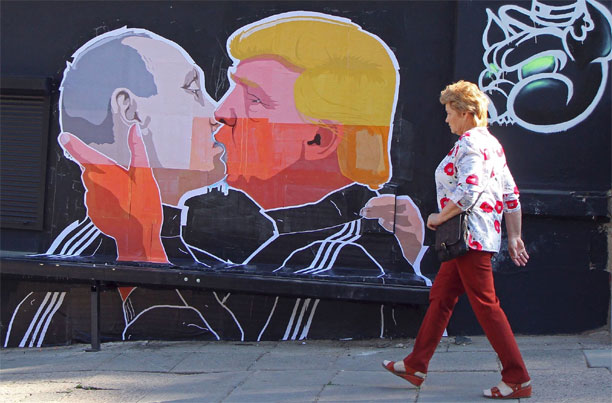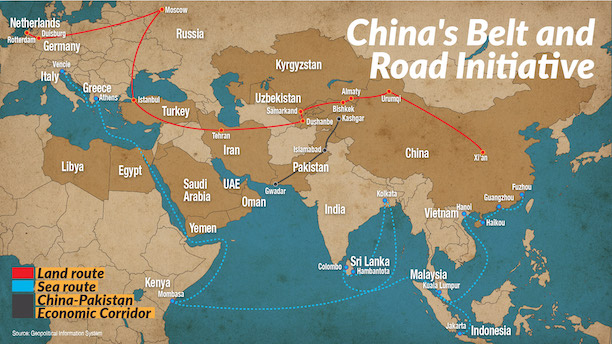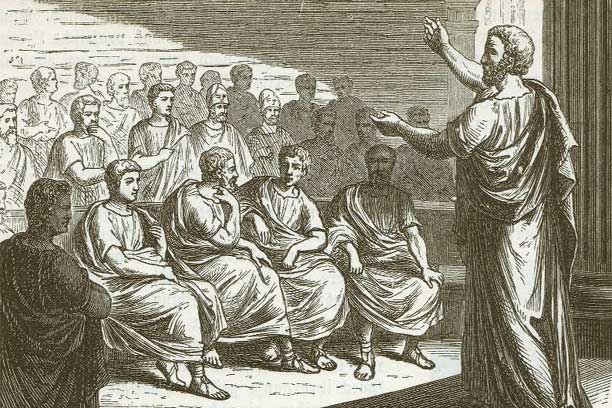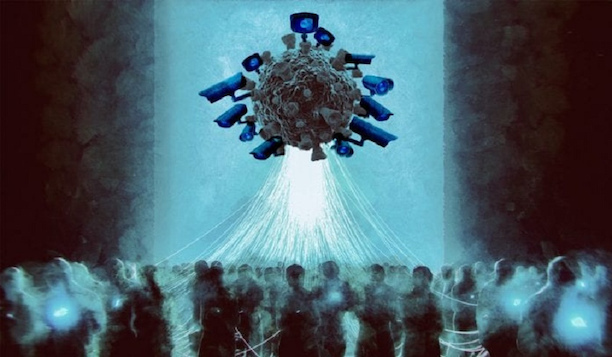Pages: << 1 ... 24 25 26 27 28 29 30 31 32 33 34 ... 1278 >>
The Hidden Infrastructure of Electromagnetic Warfare and Surveillance: A Deep Dive into Schriever Air Force Base, Directed Energy Weapons, and Space-Based Tracking

Fred Gransville
The modern battlefield is no longer confined to the traditional physical terrains but has extended into the electromagnetic spectrum, outer space, and cyberspace. As the USAF and Space Force continue to expand their capabilities, installations like Schriever Space Force Base (formerly Schriever Air Force Base) in Colorado have become central hubs for advanced technologies, including electromagnetic weapons, satellite-based surveillance, and cyber warfare systems. Publicly available information gives only an insight into such development, while the full potential of the U.S. military to monitor and act upon electromagnetic environmental modification in bulk remains cloaked in secrecy.
Schriever Space Force Base: Where Space and Cyber Meet
Schriever Space Force Base, located near Colorado Springs, is one of the most critical installations to U.S. space and cyber operations. It hosts the 50th Space Wing, with satellite command and control, missile warning systems, and GPS operations. The base also hosts components of the National Reconnaissance Office and the U.S. Space Force, which manage intelligence-gathering satellites and strategic space defense initiatives.
The Arbitrary Hypocrisy of American “Justice”
Paul Craig Roberts

US Democrat Senator Bob Menendez, Chairman of the Senate Foreign Relations Committee was sentenced to eleven years in prison by federal district judge Sidney Stein for acting as an illegal agent for Egypt and accepting cash and gold bars as payment.
How does this differ from the $1,417,811 bribe that Big Pharma pays in campaign contributions to Senator Bernie Sanders or the $821,941 campaign contribution Big Pharma pays to Senator Elizabeth Warren? If you think these sums don’t make Sanders and Warren agents of Big Pharma, you are out of your mind. Warren is doing her Big Pharma assigned job by trying to block Robert Kennedy’s confirmation as Secretary of Health and Human Services.
Congress is up for sale, and it is purchased with campaign contributions. Everyone in Washington knows that members are purchased by lobby groups, such as Big Pharma, the military/security complex, agribusiness, energy, the Israel Lobby, and so on. A corrupt or stupid Supreme Court legalized the purchase of the US government by lobby groups. This is the reason that Congress does not represent the people who elect Congress. You can blame your lack of representation squarely on the US Supreme Court. One can’t help but wonder if there were under the table payoffs.
A Holistic Approach to Health: Traditional Chinese, Kampo, and Ayurvedic Medicine

Tracy Turner
Before beginning any herbal regimen, consult a licensed physician and also be sure to ask about drug interactions with herbs. This article is not a substitute for a licensed physician and does not constitute medical advice.
Traditional Chinese Medicine, Kampo Medicine, and Ayurvedic Medicine have been practiced over several millennia. Each provides a total approach to health that stresses the importance of balance within the body and mind.
These ancient systems employ herbs, spices, and natural compounds to promote well-being and address the root causes of health issues rather than merely treating symptoms, with a key focus on preventive care. In this article, we review how traditional systems of healing provide powerful, natural remedies that can promote apoptosis, improve memory and cognition, and support cardiovascular health. From ancient wisdom to modern biohacks, combining these can support your overall health in a holistic and sustained manner.
Italian Fascism: An Interpretation
James B. Whisker

When the Grand Council of Fascism on 25 July 1943 removed Benito Mussolini from his position as head of government, fascism ended in Italy. Its ending was as surprising as its beginning, when, on 28 October 1922, some 300,000 Blackshirts under Mussolini's command seized the Italian state. The events between those dates can be chronicled. The explanation of what had transpired is much more elusive. Fascism was touted by Mussolini as a unique combination of thought and action, yet fascism was still seeking an ideology after the Second World War was over.
The roots of fascism are many and complex.[1] The fascist leadership, notably Mussolini, admitted the multi-faceted influences of liberalism, marxism, syndicalism, risorgimento, socialism, catholicism and nationalism on their ideology.[2] Their speeches and writings were replete with quotations from Schopenhauer, Hegel,[3] Sorel, Saint-Simon, Pareto, Mosca, Mazzini and a hundred other writers. They admitted fascism was a unique blending of all of these and much more, yet they were never able to wholly explain it to their own satisfactions.
Italian fascism was the first application of what would become a generic ideology encompassing, or allegedly encompassing, movements of the political right in every nation of Western Europe, the United States, the British Commonwealth nations and even Japan.[4] It was believed by Italian leaders to be highly exportable, yet it carried strong Italian nationalistic overtones. It was essentially non-racist, yet in Italy it preached the gospel of the coming Italian race of overmen.
China’s Belt and Road Initiative – Good for Trade or Debt Diplomacy?

Cathy Smith
China weathered the current political and economic upheaval of Belt and Road Initiative: Catalyst for Global Development or Vehicle for Neo-Colonial Control? The Silk Road of the Ancients (2nd century BCE-15th century CE) and China's BRI have one thing in common: the desire to unite East and West for trade, cultural exchange, and political influence. Structurally, in scope, and by purpose, they are very different.
Ancient Silk Road: Purpose: This was hugely for the purpose of serving as a trade route for silk, spices, and other goods that helped in the cultural exchange between China, Central Asia, the Middle East, and Europe.
Human Security and its Dimensions
Dr. Vladislav B. Sotirovic

The concept of human security is a controversial approach by a certain group of post-Cold War 1.0 academicians (after 1990) for the purpose of redefining and at the same time making broader the meaning of security in global politics and the studies of international relations (IR). We have to keep in mind that up to the end of the Cold War 1.0, security as both political phenomena and academic studies exclusively were connected only with the protection of the independence (sovereignty) and territorial integrity of states (national polities) from the military threat (war, aggression) by external factors (players) but in fact, by other states. Actually, that was the crucial idea regarding the concept of national (state) security, which had unquestionable domination within security analysis and policy-making decisions after 1945 up to the 1990s.
However, from the mid-1990s, security studies, responding to the new global geopolitical changes after the collapse of the Soviet bloc, started to research security issues in broader, but not only state-military categories regardless of the fact that state and state security still remained the focal object of security studies as the entity to be protected. Nevertheless, the new concept of human security challenged the state-centric paradigm of security by stressing the individual, as the focal referent, and object of security. In other words, studies of human security deal with security for the people (individual or group) rather than of governmental administration or/and national state (borders). Advocates of the concept of human security claim that it is a significant contribution toward resolving the problems of human safety and survival posed by poverty, environmental changes, disease, the abuses of human rights, and local/regional armed conflicts (for instance, civil war). Nonetheless, today, it became quite obvious that at the time of turbo globalization, security studies must take into account a broader range of concerns and challenges than simply defending the state from external armed action.
The Failed American Experiment: Synthetic Media, Digital Fascism

Fred Gransville
Synthetic Media: The Backbone of the Totalitarian Surveillance State in 2025-2027
By 2027, a few short years ahead, the United States will have fully completed the transition from a constitutional democracy to a totalitarian state defined by universal surveillance, corporate dominance, and the eradication of individual liberties. If it has not already have done so. It is here that synthetic media will become the very lynchpin of such a shift, a pervasive weapon of thought control, social engineering, and mass manipulation.
As AI further evolves, synthetic media will replace all other forms of media as a means through which the fixtures in public perception and the cementing of ruling elite power take place. All this with the capability of the technology to create hyper-realistic deepfakes, AI-generated text, and synthetic audio to fuel dystopian oppression on an unrivaled scale by offering governments and corporations unparalleled capabilities to manipulate reality itself.
Free Cuba
By David Swanson, World BEYOND War
Remarks at the Sixth International Conference for World Balance in Havana, Cuba, Jan. 30, 2025
Before I start I want to express sympathy for the people who have died in a plane crash in Washington, and I want to condemn Trump’s disgusting proposal to kidnap people and lock them up in Guantanamo.
I’m very happy to be in Cuba. I feel closer to Cuba than I do to people in the United States with red hats reading MAGA. Cuba is, in fact, closer to the continental United States than is Hawaii or Alaska or any of the U.S. colonies in the Pacific or about 916 of the United States’ 917 foreign military bases. The people of the U.S. and Cuba have managed, against the odds, to share a great deal of culture and good will, poetry, music, food, and drink. But we sure are divided by governments.
I just searched the internet in the United States for the words “free Cuba” and discovered that it means the overthrow of the Cuban government. I tried searching for “Cuba libre” and learned that it means a drink. But what if I want to search for “a Cuba free of hostile actions by the U.S. government”? The internet is of no help.
The U.S. government has just put Cuba back on a list of governments sponsoring terrorism. As the leading supplier of weapons to wars, genocides, and brutal dictatorships around the world, the U.S. government does have the expertise to form such a list. But it doesn’t put itself on the list, it has no legal authority to act on such a list, and it doesn’t offer evidence of Cuba sponsoring terrorism. At most it has two arguments that fall apart at the slightest examination.
Unraveling the Chemtrail Phenomenon: Aerosols, Geoengineering, and the Sky's Hidden Agenda

Tracy Turner
What's Really in Our Skies?
For years, millions have been watching in the sky a new unidentified mystery: elongated streams deposited by aircraft across it, to which the name of chemtrails has been popularly attached nowadays. Sometimes so numerous, these trails create an illusion of ribbons or a chemical haze on the sky. These trails, according to the mainstream scientific conception, emanate from contrails-which is short for condensation trails formed at high altitude by water vapor in aircraft exhaust.
For many, this explanation does not hold water. Whereas contrails usually disappear within minutes, chemtrails seem to hang around and persist, even at lower altitudes, feeding suspicion that this may indeed be a deliberate effort to impact the climate. Could there be trails from some sort of clandestine geoengineering program designed to alter the world's climate? This article looks at an emerging body of evidence that may prove chemtrails are not merely an atmospheric anomaly but could very well involve aerosol spraying in service to climate engineering.
The Rise of Google and Bing Censorship and How to Bypass It DeepSeek Artificial Intelligence
Chris Spencer

Image from: France 24
Is Deep Seek American's Chinese Savior, or Just A Different 51 Flavor(s) of Censorship?
DeepSeek: Unlocking the Internet Beyond Censorship
In today's digital landscape, mainstream search engines like Google and Bing control the flow of information, filtering search results based on political, corporate, and regional interests. This growing censorship limits access to independent journalism, alternative viewpoints, and critical research. As a result, users seeking unfiltered, unblocked and unbiased information need a reliable alternative. Enter DeepSeek – a cutting-edge search engine designed to break through the barriers of censorship and restore true online freedom.
Unlike traditional search engines that track user data and manipulate search rankings, DeepSeek prioritizes privacy, neutrality, and unrestricted access to information. It allows users to explore a wealth of global perspectives without interference, offering search results that are free from government or corporate bias. Whether you're conducting academic research, investigating suppressed news stories, or simply looking for an unfiltered, unblocked browsing experience, DeepSeek provides a platform where information flows freely.
With DeepSeek, you can take back control of your search experience and access a broader, more open internet. As online censorship continues to rise, finding alternatives that respect user privacy and intellectual freedom is more important than ever. Start exploring with DeepSeek today and unlock a truly independent search experience.




